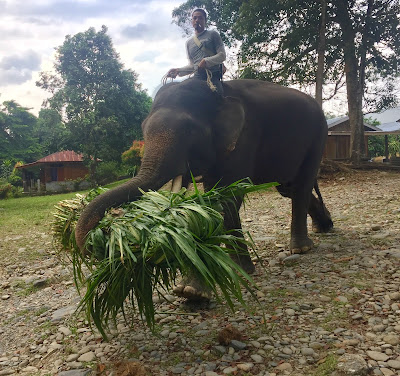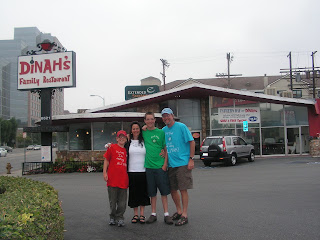Flying into the Sunrise (Part 2)

We then flew over more volcanoes stabbing through cloud-cover to Medan, Sumatra. We eventually arrived at a town far from civilization, Bukit Lawang, an eco-tourist hotspot because of the repatriated-into-the-wild orangutans that populate an ever-shrinking nature reserve there. Farmers have been consuming nature for decades and centuries, an ongoing economically driven problem around the globe, to provide arable land for growing crops and feeding cows for meat and hubris. Rescue elephants that we later encountered in northern Sumatra had rampaged and flattened villages in Banda Aceh, further to the north, the same place that was flattened by a tsunami in 2004, leaving it bare with only extreme-faith to sooth-over the population remaining. The elephants we encountered were rescued from 'death by government decree,' and made to live sporting a tourist-makeover in a land near Bukit Lawang, and distant from elephant ancestor memories. Eco-tourism was able to expose the cruelty ...


